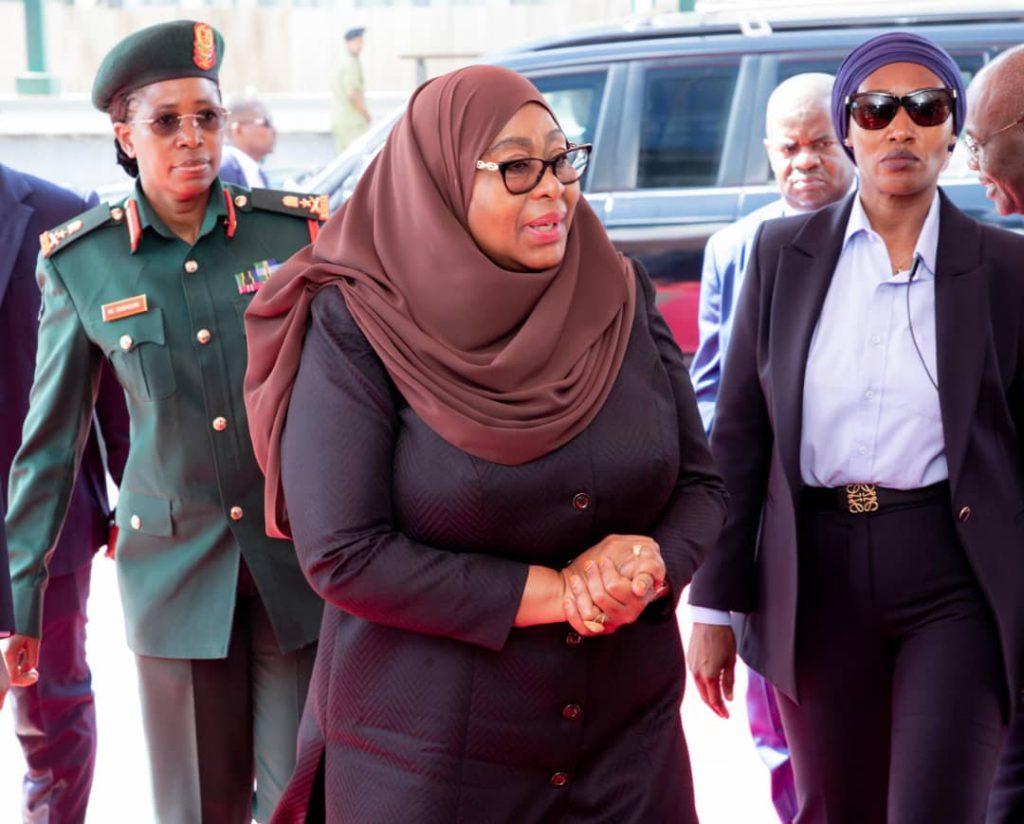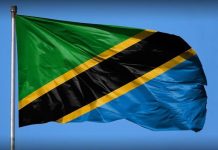Africa-Press – Tanzania. TANZANIA has undergone massive transformation under President Samia Suluhu Hassan’s four-year leadership.
Significant progress has been made in almost all sectors, including economy, education, healthcare, transport and communication infrastructure, democracy and foreign relation, while creating favourable environment for new investment and development opportunities.
However, among President Samia’s achievements that will enter the country’s history books is the success recorded in the energy sector.
Undoubtly, Tanzanians, who closely monitored how the country was faring in the energy sector in previous phases of governments, now stand to be good witnesses on the reforms being carried out by the sixth phase government under President Samia.
By February 2025, the electricity generation capacity surged to 3,796.71 megawatts, effectively doubling the 1,889.84 megawatts recorded in January 2024.
The successful implementation of the Julius Nyerere Hydropower Project (JNHPP), with a capacity of 2,115 megawatts, is currently 99.8 per cent complete, with turbines No. 8 out of 9 generating a total of 1,880 megawatts.
This project has not only eliminated power rationing but also decommissioned expensive diesel power generation plants, enhanced electricity availability in urban and rural areas, facilitated transportation through the Standard Gauge Railways (SGR) and brought electricity to previously unserved areas.
President Samia’s efforts in energy transformation extend beyond Tanzania, as she takes on a leadership role in championing the Clean Cooking Energy Agenda throughout Africa.
In addition to initiating the national clean energy strategy, she actively promotes this cause on international stages, striving to ensure that cooking is carried out in healthy and environmentally friendly ways.
During her leadership, President Samia made history by hosting the Africa Energy Summit that was attended by Heads of State from 22 nations. The summit was aimed at creating strategies to provide electricity access to 300 million people in Africa by 2030, during which twelve countries, including Tanzania, introduced their National Energy Compact for 2025-2030.
Under her leadership, Tanzania marked a record breaking history by launching the SGR train service from Dar es Salaam to Dodoma on August 1, 2024, expanding the railway network from 722 km to 2,102 km.
Over 2 million passengers have so far benefited from the SGR service, with 54bn/- generated revenue between the launching date and March 2025.
During the same period, the government, under President Samia, secured funding for the construction of the SGR line from Tabora to Kigoma to enhance trade with the Democratic Republic of Congo.
In aviation sector, Air Tanzania Company Limited acquired seven new planes, raising its fleet to 14 passenger planes and one cargo aircraft increasing passenger numbers significantly.
The government is also investing in port expansion and improvement, including a 421 US million dollar upgrade of Dar es Salaam Port to boost capacity and competitiveness.
In the mining sector, the government has significantly enhanced its involvement in the investment sector, raising its share in Williamson Diamond Company from 25 per cent to 37 per cent and acquiring non-transferable shares in seven mining companies, including Faru Graphite and Tembo Nickel.
To ensure the nation and the general public reap more benefits from the mining sector, the government has also been stressing on the value addition of minerals.
Improvements and management of the mining sector, including the establishment of mineral markets and small purchasing centres, have increased government revenue from 161bn/- in 2015/16 to 756bn/- in 2023/24. From July to December, 2024, collections reached 52.15 per cent of the 2024/25 target of 1tri/-.
Through international partnerships and strategic investments, Tanzania is emerging as a hub for mining in East Africa and globally.
The government also continues to implement strong strategies to empower small-scale miners by providing extension services and favourable conditions for efficient operations.
During the four-year period of President Samia leadership, the Export Processing Zones Authority (EPZA) has attracted over 1.17 US billion dollar in investments, creating over 20,000 jobs and boosting exports by 397.64 US million dollar from 45 registered projects. In 2024, the Tanzania Investment Centre (TIC) registered 901 projects, surpassing the 2013 record of 885.
By integrating Tanzania Investment Centre and EPZA, the government has streamlined operations and fostered a favourable environment for further investment. Tanzania’s industrial and trade sectors have also significantly advanced, with the country now having 14 automotive plants and three glass factories, bolstering manufacturing.
Furthermore, Tanzania has showcased its economic power in the global market through 48 Dar es Salaam International Trade Fairs organised by the Ministry of Industry and Trade by generating 3.62bn/- in direct sales.
President Samia, in her four-year leadership, has also prioritised water sector, leading to an increase in access to water in rural areas from 70.1 to 79.6 per cent, while urban access rose from 84 to 90 per cent.
Additionally, 1,633 water supply projects have been completed, including 1,335 in rural areas and 298 in urban areas.
On environment, the government has launched a national campaign for tree planting of water-friendly trees, resulting in the planting of over 2,541,803 trees across the nine watersheds in the country.
Touching on the achievements in local governments, the government through the President’s Office (Regional Administration and Local Government) has been able to collect data in about 1,415 markets in 184 councils, a task that had been completed by December last year.
On citizens’ empowerment, a total of 4,073 groups of beneficiaries have been registered so far, bringing the total number of beneficiaries to 56,645 groups that consist of women, youths and people with disabilities across the country.
Furthermore, in 2024/25 financial year, a new loan scheme distribution system was established in which by December last year 2,726 groups had received loans, amounting to 27.67bn/- in total from 64 councils, with 27.76bn/- sourced from council revenues and 93.1m/-from loan repayments.
In education sector, new 234 primary schools, 103 vocationalbased secondary schools and seven boys’ dormitory schools, were constructed along with 229 teachers’ houses.
To enhance teaching of ICT in schools, over 9.35bn/- was dished out for purchasing Information and Communication Technology (ICT) equipment, including computers, projectors and other digital tools for 231 secondary schools.
On land ownership, the Ministry of Lands, Housing and Human Settlements Development has successfully issued 101,474 title deeds, registered 252 plots and prepared 123,583 legal documents, including 5,042 Customary Title Deeds.
During the four-year leadership of President Samia, 2023 Land Policy has also been adopted and district land councils have increased from 59 to 115, resolving over 110,000 cases.
Efforts to formalise informal settlements have registered 143,810 houses in different councils.
The National Housing Corporation is also progressing with affordable housing schemes, completing 1,015 houses, with 387 fully finished and 628 others near completion.
President Samia’s leadership has seen significant advancement in the health sector with construction of dispensaries, health centres, district, regional (referral) and zonal hospitals in the past four years, including the acquisition of modern medical equipment such as MRI and CT scanners.
During the period, Tanzania has seen 1,455 specialists trained, increasing the total from 2,637 to 2,684 in 2024.
Maternal and emergency services have strengthened, with facilities for caesarian sections increasing from 388 to 523.The M-Mama system has successfully reached over 105,780 pregnant women across the country.
Investment in the health sector in the country and other important matters such as championing for gender equality has prompted President Samia to be recognised.
It would be recalled that last month she was awarded Global Goalkeepers Award for being in the forefront in champioining for quality maternal healthcare services.
On agriculture, President Samia has continued to realise agriculture as the backbone of Tanzania’s economy, resulting in significant sector transformation with budget increased by 230 per cent, from 294bn/- to 1.248tri/-.
The establishment of the National Cooperative Bank has allowed farmers to access lowinterest loans at 4.5 per cent, now that the rates have been reduced from 22 to 9 per cent, encouraging investment.
The M-Kilimo advisory service has enhanced extension services and linked agriculture with industrial production, leading to doubled agricultural exports valued at 2.3 US billion dollars.
ALSO READ: Journalists organise symposium to assess Samia’s four years in office
Cash crop production has improved, with sunflower production rising by 136.4 per cent, attracting investors in crops like tobacco, cotton and cashews.
The Building Better Tomorrow (BBT) programme has attracted youths to engage in agriculture.
During the period under review a total of 86 youths have been given land to engage in commercial farming.
President Samia has significantly promoted Tanzania tourism through films like ‘The Royal Tour,’ increasing tourist arrivals from 1.8 million in 2023 to 5.4 million in 2024, raising revenue from 3.3 US million dollar to 3.9 US million dollar.
Tanzania received several World Travel Awards including Africa’s Leading Destination and the World’s Leading Safari Destination for 2024.
Mount Kilimanjaro was awarded African Leading Tourism Attraction, while the Tourism Board was recognised as Africa’s Leading Tourism Board.
Due to such initiatives, the country will host events such as the World Food Tourism Forum in 2025.
In four years, the Ministry of Internal Affairs has significantly improved immigration services including issuing 149,000 electronic passports, while National Identification Authority (NIDA) registered 79.5 per cent of adults, distributing over 20 million identification cards to promote essential service access.
The sixth-phase government has also significantly advanced efforts against drug trafficking through the Drug Control and Enforcement Authority, seizing over 2.3 million kilogrammes of drugs in 2024, a rise of 18.53 per cent from 2023.
For More News And Analysis About Tanzania Follow Africa-Press







